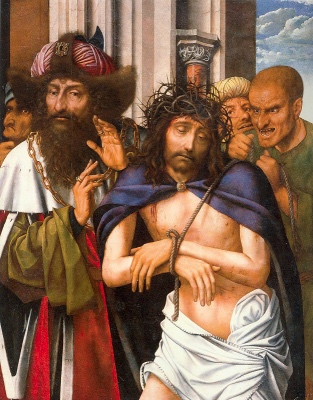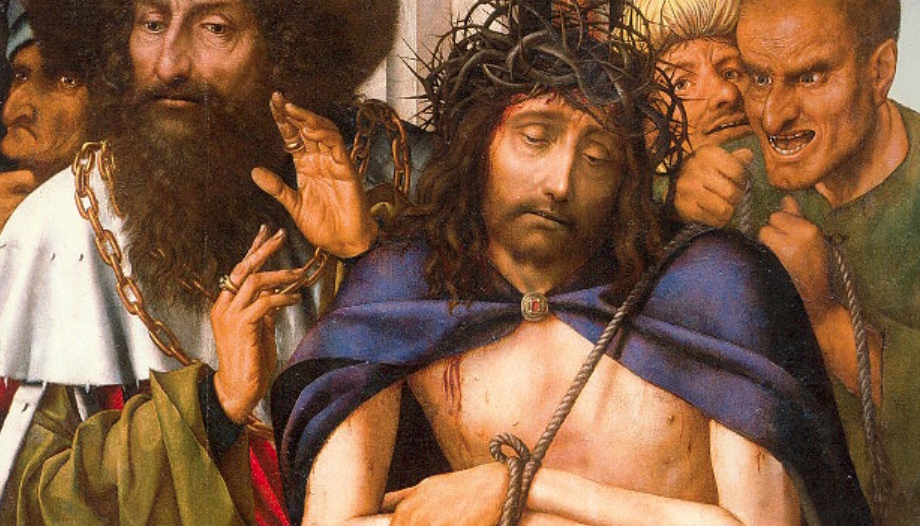Twice each Holy Week we hear the readings of the Passion of the Lord: once, at the Palm Sunday Mass -this year we heard Luke's version, although it is alternated with those of Matthew and Mark-; and again, in the Good Friday services, in which the Gospel according to St. John is proclaimed in a fixed form.
Why so much insistence on recalling an already known story, in whose proclamation one sometimes gets distracted or tired by the long time of standing? The truth is that the stories of the Passion, Death and Resurrection of the Lord have been venerated by the Church since its beginnings. They are, in fact, the core of the Gospels.
The great coherence of the four narratives points to a special attention of the first Christians in underpinning these texts well to be remembered, so that what happened in that first Holy Week in Jerusalem will never be forgotten.
It is stories that shape our lives. It was our parents who, through family stories, explained to us who we are. With the help of stories, legends and narratives, they taught us to know right from wrong, to situate ourselves in society and to behave correctly.
Then, it was personal tastes or the vagaries of life that took us from story to story, from novel to novel, from movie to movie, from series to series, until we became the person we are today.
We would be stunned if we were able to recognize the influence of the stories we read, hear or see in each of our gestures, in our reactions, in our behavior patterns.
There are days when you feel like the Ugly Duckling and others when you think you are James Bond; in the same day you wake up with the desire to do the good of Don Quixote and go to bed with the good of Voldemort. We are incarnated characters, prodigiously real stories. The marvelous organ that endows us with consciousness, our brain, tells us a story in which we are the protagonists and in which heroes and villains, adventures and misfortunes, comedies and dramas intersect.
For those who want to explore further the importance of stories for ordinary life, I recommend that you read the message that Pope Francis published on the occasion of World Communications Day 2020. In this text, the Pope affirms that "it is not by chance that the Gospels are stories. While they inform us about Jesus, they 'perform' Jesus for us, they conform us to him: the Gospel asks the reader to participate in the same faith in order to share the same life". In another place, he affirms that "the story of Christ is not the patrimony of the past, it is our story, always present" and that, "after God became history, all human history is, in some way, divine history. In the history of every man, the Father sees again the history of his Son who came down to earth".

So, this evening, when in the services we listen again to the majestic Passion according to St. John, it will be exciting to discover ourselves in it in every paragraph. We will find ourselves in the traitor Judas, in the violent Peter, in the hypocritical religious Annas and Caiaphas, in the mediocre Pilate, in the merciless mob, in the profiteering soldiers or in the cowardly -because absent- disciples; but also in Mary, in John and in the holy women, in the charitable Joseph of Arimathea and Nicodemus, and above all in Jesus: "Behold the man (Ecce homo)", Pilate will prophesy without knowing it. And it is in Jesus, who gave himself up for love, bruised, crowned with thorns and wearing a purple robe, as in a new creation, that "the man" is manifested for the first time, the perfect form of being men and women to which we must strive. With our particular cross on our shoulders, let us listen attentively to this universal and eternal story, because the story of God made man is the story of our lives.
Journalist. Graduate in Communication Sciences and Bachelor in Religious Sciences. He works in the Diocesan Delegation of Media in Malaga. His numerous "threads" on Twitter about faith and daily life have a great popularity.











